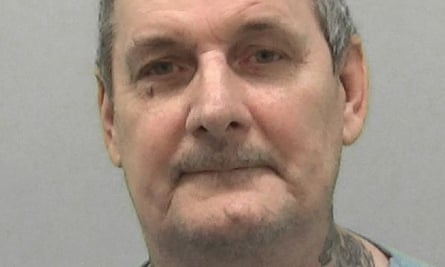A police force has formally apologised to a man who three decades ago was wrongly accused of killing a seven-year-old girl, after the real murderer was finally convicted.
George Heron was 24 when he was charged with the 1992 murder of Sunderland girl Nikki Allan.
He was hectored into making a confession and found not guilty after a judge ruled a number of oppressive police interview tapes were inadmissible.
David Boyd was convicted last Friday and Northumbria police have now apologised to Heron.
The force also said it hoped to meet members of Nikki’s family to whom the same apologies could be made, apologies for mistakes made and for the length of time it took to get the right person.
Nikki, a shy seven-year-old, was beaten over the head with a brick and then stabbed 37 times by a man who, it is now known, was Boyd, now 55.
Heron was quickly arrested and denied the murder 120 times during three days of intense questioning before finally “confessing”. The questions were repetitive and oppressive, a judge said, and included being pounded with sexual allegations.
Northumbria’s assistant chief constable Alastair Simpson said the case led to changes in the way all police interviews were done nationally.
“As a probationer in my early police career,” he said, “I remember listening to the interview. I think the impact has been far-reaching and I’m pleased to say that actually improved standards and changes of practice have been embedded.
“There are dramatic differences to the way we did things in 1992 to the way we do things today.”
One striking feature of the case has been the determination of Nikki’s mother, Sharon Henderson, to get justice. She has talked about how badly police let her down, how she was “treated like a drunken mother with mental health problems”.
DCS Lisa Theaker, who led the investigation, said Henderson deserved respect for her “constant and relentless campaign for justice”.
Theaker and Simpson hope to meet Henderson and other members of Nikki’s family to answer questions.
“I just hope, that once we talk through some of the stuff you haven’t heard in court around other people she’s concerned about, it will hopefully give some comfort,” said Theaker.

The conviction was only possible because of advances made in forensic science, which led to DNA on Nikki’s clothes being linked to Boyd. But it was a long, complex, painstaking investigation, police said, with more than 1,000 other men having to be ruled out.
Heron has asked the police to make the apology public, although nothing is known about the life he has managed to make. When a tabloid newspaper tracked him down four years after the case he said: “There were times I wondered if I had killed Nikki … So many people said I had that I started to doubt myself.”
A victim impact statement form Heron is expected to be read at Boyd’s sentencing on 23 May.

